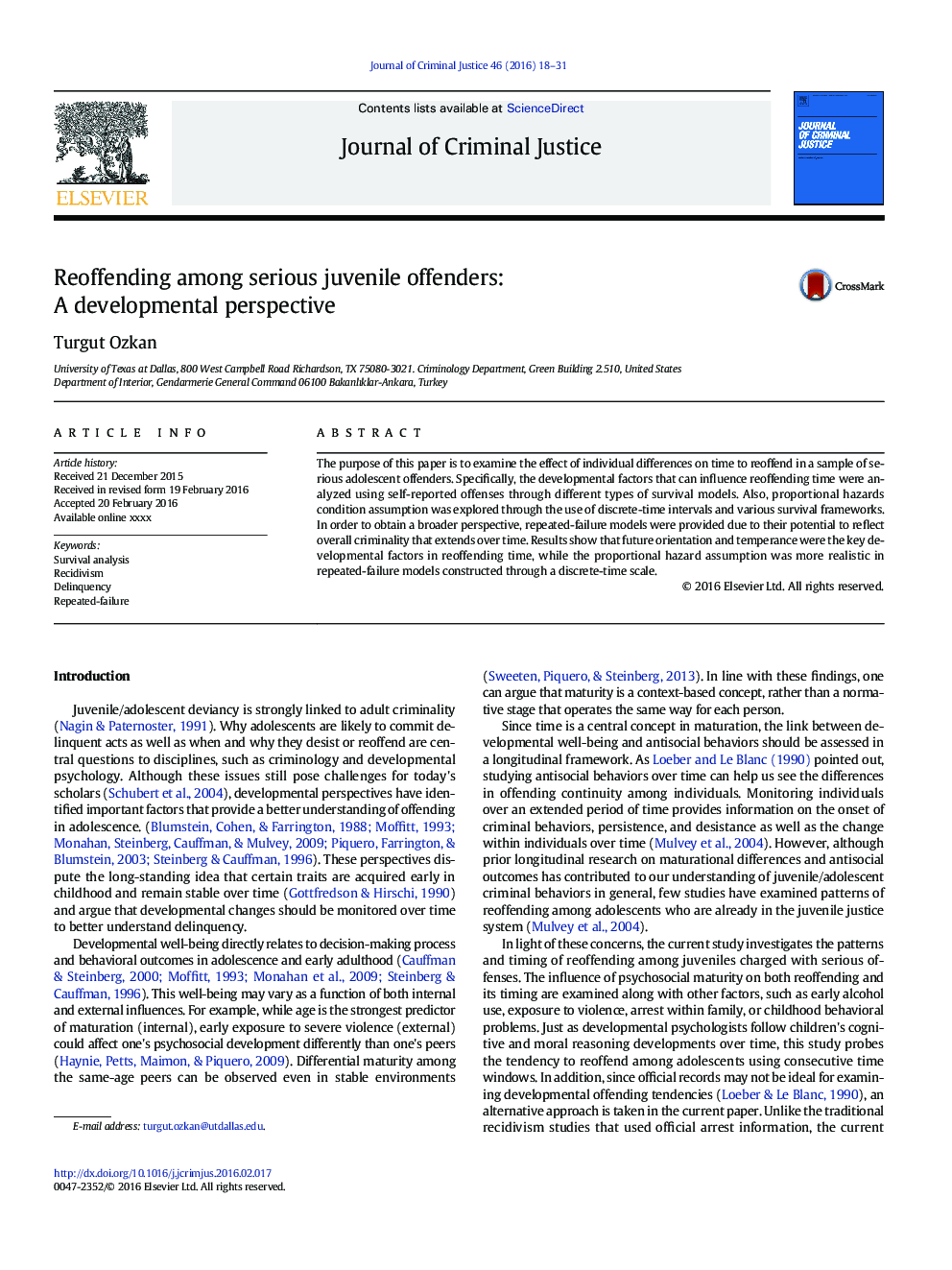| Article ID | Journal | Published Year | Pages | File Type |
|---|---|---|---|---|
| 7242276 | Journal of Criminal Justice | 2016 | 14 Pages |
Abstract
The purpose of this paper is to examine the effect of individual differences on time to reoffend in a sample of serious adolescent offenders. Specifically, the developmental factors that can influence reoffending time were analyzed using self-reported offenses through different types of survival models. Also, proportional hazards condition assumption was explored through the use of discrete-time intervals and various survival frameworks. In order to obtain a broader perspective, repeated-failure models were provided due to their potential to reflect overall criminality that extends over time. Results show that future orientation and temperance were the key developmental factors in reoffending time, while the proportional hazard assumption was more realistic in repeated-failure models constructed through a discrete-time scale.
Related Topics
Social Sciences and Humanities
Psychology
Applied Psychology
Authors
Turgut Ozkan,
